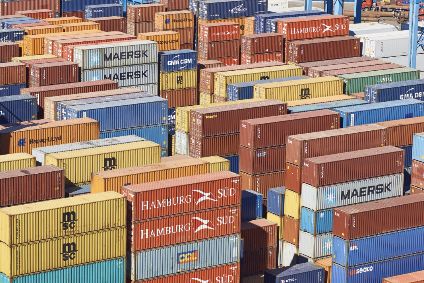
The latest monthly round-up of updates to key free trade agreements and trade preference programmes involving the US, EU and Japan covers developments in July 2018. Trade agreements, rules of origin, tariffs and schedules are all covered in depth in re:source, the new online strategic planning tool from the team behind just-style.
UNITED STATES

Discover B2B Marketing That Performs
Combine business intelligence and editorial excellence to reach engaged professionals across 36 leading media platforms.
African Growth and Opportunity Act (AGOA)
In a proclamation released on 30 July 2018, President Trump announced the suspension of Rwanda’s duty-free treatment for all AGOA-eligible apparel products until Rwanda “comes back into compliance with the AGOA eligibility requirements.” Losing the AGOA benefits means Rwanda’s apparel exports to the United States will be subject to the most-favoured-nation (MFN) tariff rate, which averaged 12.8% for knitted apparel (HS chapter 61) and 10.1% for woven apparel (HS chapter 62). In 2017, the United States imported apparel worth $1.5m from Rwanda, although this was only 3% of Rwanda’s total exports to the United States. Rwanda remains eligible to receive non-apparel benefits available under AGOA.
The move followed an out-of-cycle review of the eligibility of Rwanda, Tanzania and Uganda for trade preferences under the African Growth and Opportunity Act (AGOA), with the USTR on 29 March 2018 determining that Rwanda was not making sufficient progress toward the elimination of barriers to US trade and investment. In March 2017, the US association representing used clothing exporters – the Secondary Materials and Recycled Textiles Association (SMART) – filed a case with the USTR challenging the policies that limit used clothing imports in Kenya, Rwanda, Tanzania, and Uganda. Kenya, Tanzania and Uganda resolved the issue in 2017.
US-EU trade negotiation
After meeting with European Commission President Juncker on 27 July 2018, President Trump said the United States and the European Union would conduct high-level trade negotiations to cut both tariff and non-tariff trade barriers significantly. In a White House statement, Trump said one of the four principles of the negotiation is to work towards zero tariffs, zero non-tariff barriers, and zero subsidies on non-auto industrial goods. The two sides also pledged to work together with like-minded partners to reform the WTO and to address unfair trading practices, including intellectual property theft, forced technology transfer, industrial subsidies, distortions created by state-owned enterprises, and overcapacity.
According to the White House announcement, the US and the EU will immediately set up an Executive Working Group for the negotiation. The discussions will also include topics such as the US steel and aluminium tariffs and EU retaliatory tariffs.

US Tariffs are shifting - will you react or anticipate?
Don’t let policy changes catch you off guard. Stay proactive with real-time data and expert analysis.
By GlobalDataEUROPEAN UNION
EU-New Zealand Free Trade Agreement
The first round of talks on the EU-New Zealand Free Trade Agreement took place in Brussels from 16-20 July 2018. The negotiation covered 13 topics, including customs and trade facilitation, dispute settlement, code of conduct, rules of procedure, energy and raw material, public procurement, intellectual property, rules of origin, small and medium-sized enterprises, state-owned enterprises, technical barriers to trade, trade in goods and trade remedy measures.
According to the textual proposal released on 30 July 2018, the proposed free trade agreement will not include a separate textile chapter as is the case in most EU free trade agreements. However, the agreement will include provisions addressing textile and apparel specific rules of origin. The second round of the negotiation is likely to happen this autumn.
EU-Australia Free Trade Agreement
The first round of talks on the EU-Australia free trade agreement took place in Brussels from 2-6 July 2018. The negotiation covered 13 topics, including customs and trade facilitation, dispute settlement, code of conduct, rules of procedure, energy and raw material, public procurement, intellectual property, rules of origin, small and medium-sized enterprises, state-owned enterprises, technical barriers to trade, trade in goods and trade remedy measures.
According to the textual proposal released on 30 July 2018, the proposed free trade agreement will not include a separate textile chapter as is the case in most EU free trade agreements. However, the agreement will include provisions addressing the textile and apparel-specific rules of origin. The next round of talks is scheduled for November in Australia.
JAPAN
Regional Comprehensive and Economic Partnership (RCEP)
The 23rd round of the RCEP negotiations took place in Thailand from 17-27 July 2018. In this round, the negotiation focused on trade in goods, trade in services, rules of origin, intellectual property and e-commerce. The 16 RCEP members also completed the negotiation of government procurement and customs procedures and trade facilitation during this negotiation round. The 16 RCEP members still aim to reach a broad agreement by the end of 2018.
Comprehensive and Progressive Agreement of the Trans-Pacific Partnership (CPTPP)
Singapore ratified the CPTPP on 19 July 2018. As of 31 July 2018, Mexico and Japan have also ratified the agreement. Sources say Canada is close to ratifying the agreement, and New Zealand will try to do so at the end of 2018. The CPTPP will enter into force 60 days after at least half of its 11 signatories have ratified the Agreement – and is likely to take effect in 2018 or 2019.





